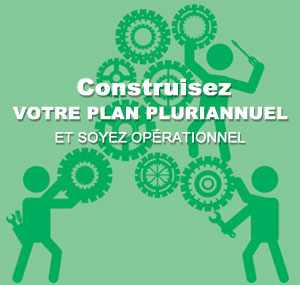In today’s interconnected globe, trainee neighborhoods play a crucial role fit academic and personal experiences.

These neighborhoods are not simply collections of individuals yet are dynamic communities that foster growth, discovering, and cooperation amongst students. They differ commonly in type and feature, from campus-based teams to international online discussion forums, each offering unique possibilities for interaction and growth.
Whether you are stepping onto an university school for the very first time or taking part in virtual understanding settings, understanding the structure and advantages of student neighborhoods can significantly boost your instructional journey. This write-up delves into the significance of pupil communities, checking out just how they operate, the advantages they offer, and the ways in which they can be leveraged for personal and scholastic success.
Recognizing Trainee Communities
Student neighborhoods are fundamental to the scholastic experience, functioning as both social and academic support systems. At their core, these areas are teams formed naturally by pupils that share typical rate of interests, objectives, or fields of study. They can be informal, such as study groups, or official, like student unions and clubs.
These areas are characterized by a shared identification and the cumulative pursuit of expertise, abilities, and experiences. They work as systems for trainees to connect, team up, and contribute to each various other’s growth, expanding past academic borders to affect individual development and area engagement.

Essentially, pupil communities are microcosms of bigger societal structures, where management skills are developed, ideas are exchanged, and lifelong relationships are developed. The interactions within these communities reflect a varied mix of social, intellectual, and social characteristics.
- Networking Opportunities: Student neighborhoods supply a network of peers and mentors that can supply assistance and assistance.
- Skill Growth: Participating in area activities assists students establish crucial skills such as communication, leadership, and team effort.
- Source Gain access to: These areas usually provide access to academic sources, consisting of research study materials and professional suggestions.
- Social Interaction: They offer a system for social communication, alleviating the shift into brand-new academic atmospheres and aiding to fight seclusion.
Via these different features, trainee communities come to be essential to the holistic development of students, laying a structure for future expert study support platform and personal success.
The Advantages of Participating In Pupil Neighborhoods
The advantages of taking part in student neighborhoods are multifaceted, influencing both academic and personal rounds.

On an academic degree, these areas encourage collaborative discovering, enabling trainees to gain from diverse perspectives and competence. Sharing knowledge and resources within an area can lead to more reliable learning outcomes and enhanced scholastic performance.
Additionally, student neighborhoods offer a platform for personal development and self-discovery. By engaging with peers from different backgrounds and disciplines, pupils gain a wider worldview, enhancing their social capability and compassion. This direct exposure to diverse perspectives is indispensable in creating critical thinking and analytic skills.
In addition, active participation in neighborhood activities can improve trainees’ confidence and self-esteem. Handling leadership functions or joining discussions and occasions cultivates a sense of accomplishment and belonging, which is essential for general health and inspiration.
Kinds Of Trainee Neighborhoods
Pupil communities been available in various types, each accommodating different rate of interests and goals. These can be extensively categorized into scholastic, social, recreational, and expert communities, among others. Each kind offers unique systems and opportunities for student interaction.
- Academic Communities: These are generally centered around details fields of study or academic passions. Instances consist of study groups, honors societies, and department clubs.
- Cultural Communities: These teams focus on promoting cultural understanding and variety, often arranging occasions and activities to commemorate numerous practices.
- Entertainment Neighborhoods: These include sports teams, recreational clubs, and hobby-based groups that supply a break from scholastic rigors and promote physical and mental health.
- Specialist Areas: These are targeted at profession advancement, using networking chances, workshops, and mentorship programs to prepare students for the expert globe.
By recognizing and involving with the right communities, pupils can customize their university experiences to straighten with their passions and profession ambitions, leading the way for a meeting scholastic trip.
Constructing a Flourishing Trainee Community
Producing and maintaining a thriving student neighborhood requires effort and partnership from both trainees and schools. It begins with promoting an inclusive atmosphere where all students feel invited and valued despite their histories.
Organizations can support this by offering sources and facilities that urge communication and engagement. This consists of producing physical rooms like pupil unions and online systems that promote interaction and partnership. In addition, arranging occasions, workshops, and seminars can additionally boost engagement, giving trainees with possibilities to connect and learn from each various other.
Management and Student Involvement
Efficient leadership is crucial in nurturing an effective pupil community. Management roles within these neighborhoods supply trainees a chance to develop and demonstrate their business and social abilities. Trainees that think these duties add significantly to setting the tone and instructions of their areas, affecting their peers favorably.
Motivating management and active engagement among trainees not just reinforces the neighborhood yet additionally equips people, preparing them for future obstacles. By promoting a culture of partnership and assistance, trainee neighborhoods can flourish, leaving a long lasting impact on their members and the academic atmosphere in its entirety.




